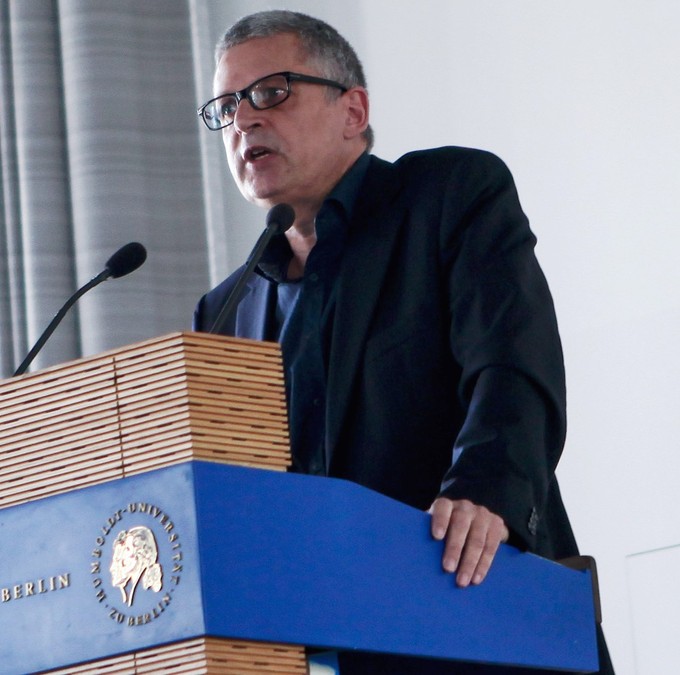
Flemming Rose at the 2015 European Students For Liberty Conference in Berlin. Photo: Wikipedia user derthis
1 August 2016
Nathan Geffen argues that while Flemming Rose should have been allowed to speak at UCT, he is not the free speech champion he is made out to be, and was thus a poor choice of speaker for an academic freedom lecture. The basis for this allegation is that Mr. Rose works for the Jyllands-Posten, a newspaper that supported the Israeli bombing of Gaza, which included the bombing of the Islamic University of Gaza, in 2008, and that Mr. Rose has evidently not commented on European and American government measures to counteract Boycott, Divestment and Sanctions (BDS) measures against Israel.
Because I defended the invitation to Mr. Rose, Mr. Geffen then seeks to taint me by accusing me of “inattention to Palestinian humanity” because I have not characterized Israel as “a systematic oppressor of the civil rights of millions of people”.
Mr. Geffen claims that this is not a case of “whataboutery” – a manoeuvre whereby one accuses one’s opponents of hypocrisy – for he acknowledges that Mr. Rose (or anybody else) cannot be expected “to comment on every free speech issue”.
However, declaring that one’s move is not a case of “whataboutery” does not mean that it is not a case of it. Indeed, having made his declaration, Mr. Geffen immediately proceeds to say that “the suppression of activism against the Israeli occupation is the elephant in the free speech room that some of the loudest free speech proponents ignore”. Thus, because Mr. Geffen has decided that this is an elephant in the room, anybody who has not commented on this should be viewed as an inauthentic defender of freedom of expression.
When an accusation of hypocrisy is a legitimate move and when it is a fallacious ploy, is a complicated matter that cannot be resolved here. However, it is precisely because it is so complicated that Mr. Geffen has not demonstrated either that he falls into the former rather than the latter category or that it is Mr. Rose who is the hypocrite.
Among other things Mr. Geffen would need to explain is whether critics of Israeli interferences with Palestinian academic freedom are hypocritical if they are not equally vociferously critical of Palestinian interferences with Palestinian academic freedom. On the face of it, one would think that somebody genuinely concerned about Palestinian academic freedom would be concerned by all serious threats to it.
This is not the place to determine the rights and wrongs of the complex and tragic Palestinian-Israeli conflict (and the resultant suffering of humanity on both sides). What is relevant is that there are passionate disagreements about that conflict. Freedom of expression entails that nobody should be prevented from expressing their views – whether they be defenders of BDS or of Israel. Thus, I am unequivocally opposed, as I am sure Mr. Rose is, to any measures that would silence people on either side of this debate. Mr. Rose and I are similarly opposed to laws that criminalise holocaust denial. Mr. Rose has expressed those views in Israel, where holocaust denial is illegal.
I agree that quite distinct from the principle of freedom of expression is the question whether a particular person is a suitable choice to deliver an academic freedom lecture. There would be something inappropriate about inviting an opponent of academic freedom to deliver a lecture intended to support academic freedom. However, that is certainly not true of Mr. Rose, even if he has not commented on those Palestinian matters that are the preoccupation not only of Mr. Geffen but also of a number of previous TB Davie lecturers, including Howard Zinn, Edward Said, Noam Chomsky, Kader Asmal and Achille Mbembe. Could it be that the content of people’s views about the Palestinian-Israeli conflict is a test of who is and who is not acceptable as an academic freedom lecturer?
Views expressed are not necessarily GroundUp’s.